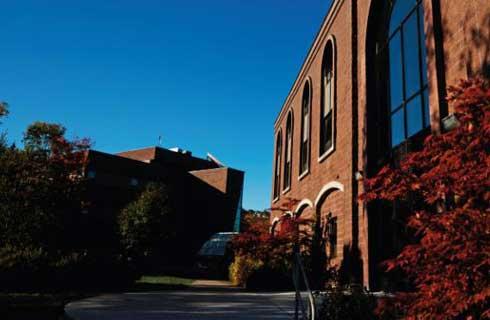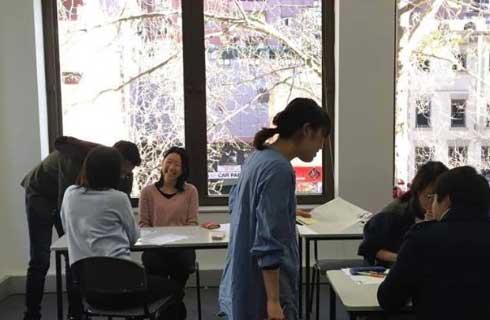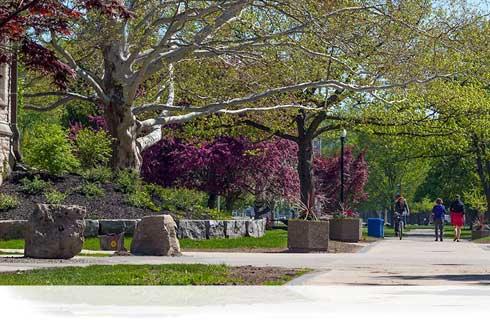国际学生入学条件
2:2 degree in a bioscience, medical, or pharmacology related subject
IELTS - 6.5 with 6.0 in all components
TOEFL ibt -87 with 19 (writing), 19 (listening), 19 (reading) and 20 (speaking
展开
IDP—雅思考试联合主办方

雅思考试总分
6.5
- 雅思总分:6.5
- 托福网考总分:87
- 托福笔试总分:160
- 其他语言考试:Pearson Academic 62 with 59 in each component
CRICOS代码:
申请截止日期: 请与IDP联系 以获取详细信息。
课程简介
Specialising in the field of blood science, you will study the crucial role that Pre-Analytical Processing, Clinical Biochemistry, Haematology and Coagulation, Immunology, Blood Transfusion, Point of Care Testing, and Phlebotomy have in healthcare. Accredited by the Institute of Biomedical Science (IBMS), our MSc draws on the experiences of practicing health professionals to examine clinical and research applications within clinical biochemistry, immunology, haematology and transfusion science. With access to state-of-the-art facilities, you’ll develop advanced laboratory techniques, and core practical skills in areas such as project management, writing grant proposals and business plans.This IBMS-accredited MSc Biomedical Science (Blood Science) course focuses on the diagnostic, research and clinical techniques that use (predominantly) patient blood samples to successfully identify, treat and manage medical conditions.Blood analysis helps to identify markers of disease and health conditions such as diabetes, HIV, cancer and coronary heart disease, while transfusions – of red blood cells, platelets and plasma – are used to treat patients having surgery or with medical conditions such as anaemia, cancer blood disorders.Biomedical science is one of the broadest areas of modern science and medicine. By developing new treatments and uncovering new knowledge which can save and improve lives, it is arguably one of the most important too.Blood Sciences is one of four different and distinct laboratory disciplines within the field of Biomedical Science, as outlined by the IBMS, alongside Infection Sciences, Cell Sciences, and Genetics and Molecular Pathology.Building on existing, undergraduate knowledge in basic science, you’ll undertake higher level scientific training to develop the advanced laboratory and analytical skills needed in clinical or research contexts, fully aware of the potential implications for patients, health workers and research alike.Your careerBiomedical science sit at the heart of multidisciplinary teams in healthcare, providing the vital scientific information which informs clinical decisions, monitors patient conditions, investigates disease and identifies ways to stop or fight infection. While the specialist research skills you learn provide a strong foundation for pursuing further study at doctoral level for those interested in doing so. You could embark on a research career that may include research and development roles within academia, research institutes or industry.Graduates of this course have gone on to PhD study, medical writing and to become a Biomedical Scientist (depending on their undergraduate degree). Some have gone to to study medicine or the Scientist Training Programme to become Clinical Scientists. Many students have completed postgraduate study to support a promotion application andor enhance current career prospects.Positions may include:Academic (PhD, teaching careers)BioinformaticianBiomedical engineerscientistBiophysicistCell processing and manufacturing specialistClinical operations researcherClinical research scientistClinical trials researchercoordinatorComputational biologistDrug development scientistGeneticistGrant writerIndustrial research scientistanalystMedical degreeMedical laboratory scientistMicrofluidic scientistNHS biomedical scientistProduct development scientistResearch technicianResearch traineefellowScience entrepreneurScientific consultingScientific sales representativeScientist in cellgene therapy labs (R&D)Scientist in Good Manufacturing Practice (GMP) labs (R&D)Scientist in pharma (R&D)Synthetic biologist
展开







 预科
预科 奖学金
奖学金 实习机会
实习机会 在校学习
在校学习 跨境学习
跨境学习 校园授课-线上开始
校园授课-线上开始 在线/远程学习
在线/远程学习














 皇家墨尔本理工大学
皇家墨尔本理工大学

 澳大利亚国立大学
澳大利亚国立大学

 詹姆斯·库克大学
詹姆斯·库克大学

 弗林德斯大学
弗林德斯大学

 弗林德斯大学
弗林德斯大学

 格里菲斯大学
格里菲斯大学









 英国
英国